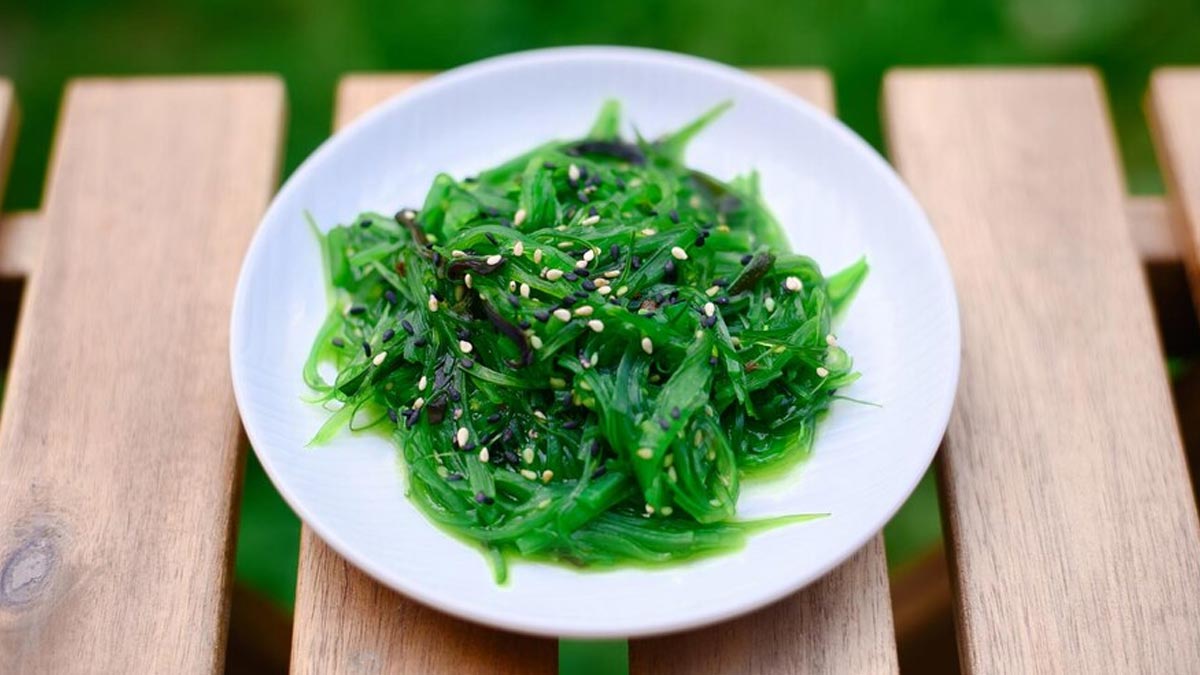
If you ever had Japanese, you probably have heard of kelp. It is the most commonly used kelp in Japanese foods, such as miso soup and udon. Basically, kelp is a type of large seaweed that belongs to the brown algae family, and has been a staple in many coastal cuisines for centuries. Beyond its culinary uses, kelp offers an array of health benefits, thanks to its rich nutritional profile and unique bioactive compounds. Let's find out some of the remarkable health benefits of incorporating kelp into your diet:
Table of Content:-
1. Nutrient-Rich Superfood
According to the US Department of Food and Agriculture, Kelp is packed with essential vitamins and minerals, including vitamin K, folate, vitamin A, vitamin C, vitamin E, and a range of B vitamins. It is also a rich source of minerals such as iodine, calcium, magnesium, potassium, and iron, making it a nutrient-dense addition to your diet.

2. Rich Source of Iodine
Iodine is crucial for thyroid health and the production of thyroid hormones, which regulate metabolism, growth, and development.
Also read: Glaucoma Awareness Week: Doctor Lists Superfoods To Maintain Eyesight And Improve Vision
As per National Institute of Health, kelp is one of the most concentrated dietary sources of iodine, making it beneficial for individuals with iodine deficiency or thyroid disorders.
3. Supports Thyroid Function
The iodine content in kelp helps support optimal thyroid function, which plays a vital role in metabolism, energy production, and hormone regulation. Consuming adequate iodine from sources like kelp can help prevent thyroid disorders and maintain overall thyroid health.

4. Promotes Heart Health
Kelp contains bioactive compounds such as fucoidans, which have been shown to have anti-inflammatory and anticoagulant properties. These compounds may help lower blood pressure, reduce cholesterol levels, and support cardiovascular health, thereby reducing the risk of heart disease.
5. Rich in Antioxidants
Kelp is abundant in antioxidants, including flavonoids, polyphenols, and carotenoids, which help neutralize harmful free radicals and reduce oxidative stress in the body. By combating oxidative damage, kelp supports cellular health and may help lower the risk of chronic diseases like cancer and heart disease.
6. Supports Bone Health
Kelp is a good source of calcium, magnesium, and vitamin K, all of which are essential nutrients for bone health. Regular consumption of kelp may help strengthen bones, prevent osteoporosis, and support overall skeletal health.
7. Aids Weight Management
Kelp is low in calories and fat but high in fiber, making it a great addition to a weight management diet. The fiber content helps promote feelings of fullness and satiety, reducing appetite and calorie intake, which can support weight loss and weight maintenance efforts.
8. Supports Digestive Health
The soluble fiber found in kelp acts as a prebiotic, feeding beneficial gut bacteria and promoting a healthy gut microbiome. A healthy gut microbiome is essential for optimal digestion, nutrient absorption, and immune function, and consuming kelp can contribute to overall digestive health.
9. Anti-Inflammatory Properties
The bioactive compounds found in kelp, such as fucoidans and fucoxanthin, have been studied for their anti-inflammatory properties. These compounds may help reduce inflammation in the body, alleviate symptoms of inflammatory conditions, and support overall health and well-being.
Also read: Why Is Pigweed A Superfood? Know It's Health Benefits
10. Enhances Skin and Hair Health
The vitamins, minerals, and antioxidants present in kelp contribute to healthy skin and hair. Kelp extract is often used in skincare products for its hydrating, anti-aging, and skin-soothing properties. Additionally, the iodine content in kelp supports healthy hair growth and may help prevent hair loss.
Kelp is not only a speciality in Japanese food, but also if you add kelp into your diet, then it can provide a range of health benefits, from supporting thyroid function and heart health to promoting weight management and enhancing skin and hair health. Whether consumed fresh, dried, or as a supplement, harnessing the nutritional power of kelp can be a valuable addition to your overall wellness routine. As with any dietary change or supplement, it's essential to consult with a healthcare professional, especially if you have underlying health conditions or concerns.
Also watch this video
Read Next
Power of Amla: 8 Ways of Adding Indian Gooseberry Into Your Daily Routine for Better Overall Health
How we keep this article up to date:
We work with experts and keep a close eye on the latest in health and wellness. Whenever there is a new research or helpful information, we update our articles with accurate and useful advice.
Current Version